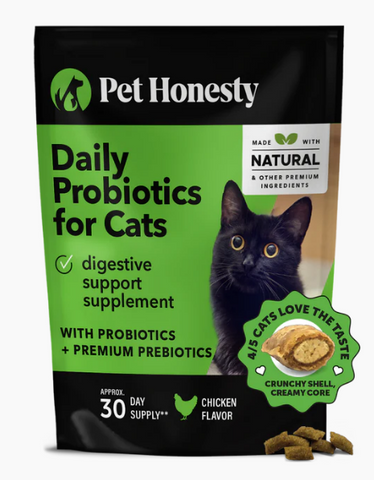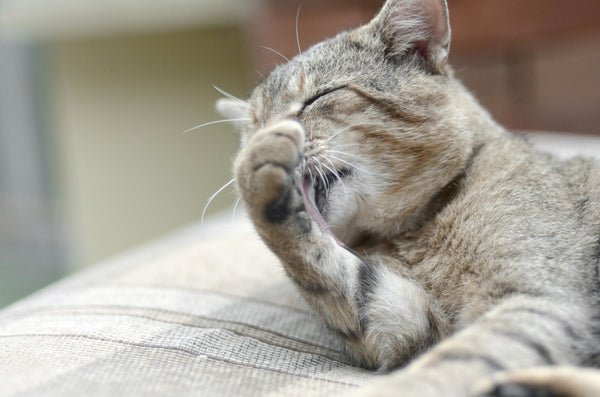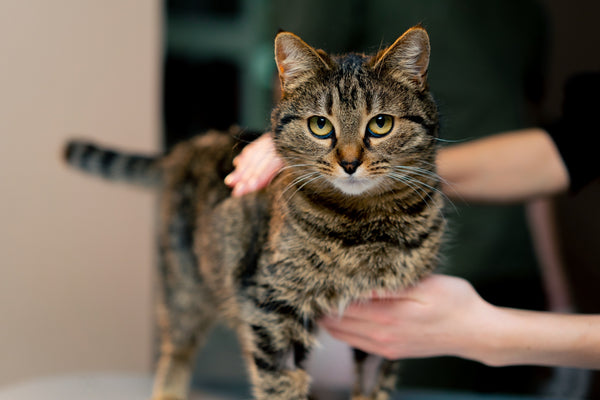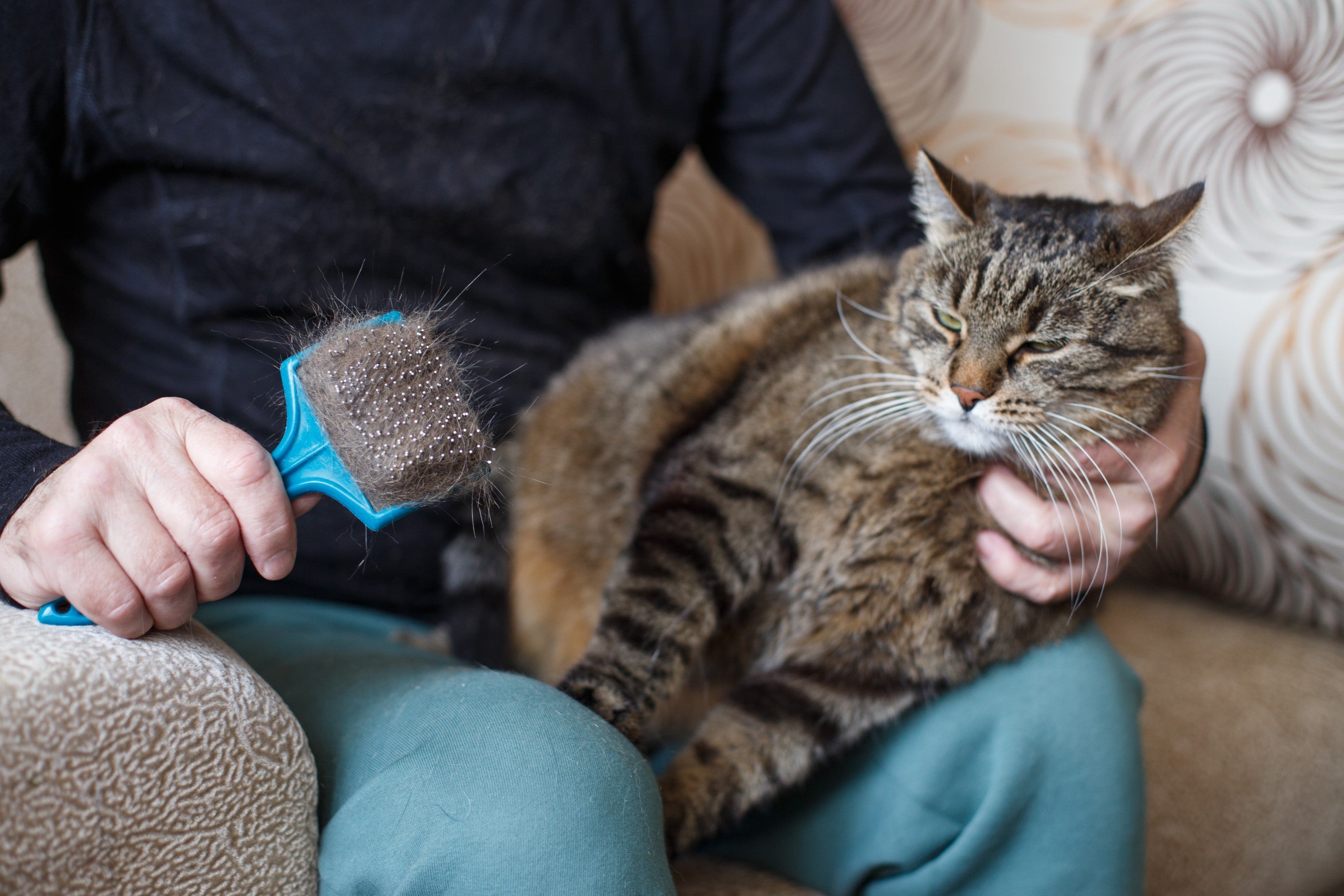Cats are meticulous groomers. Day in and day out, they spend hours licking their fur into shape. However, despite this relentless self-care routine, many cats still experience shedding and skin allergies. For pet owners, watching their beloved feline struggle with these issues can be distressing. Thankfully, the pet health market has seen a surge in cat supplements aimed at addressing these very problems.
In this extensive guide, we'll explore the world of nutritional supplements and how they can help alleviate cat shedding and skin allergies. We'll unpack the types of supplements available, understand the complicated nature of shedding and skin allergies, and equip pet owners with the knowledge of how to select the best supplements for their cats.
Understanding Cat Supplements
Supplements for cats come in various forms, including vitamins, minerals, herbs, and other naturally occurring compounds. Their primary goal is to fill nutritional gaps. These gaps can occur for a variety of reasons, such as dietary deficiencies or the need for additional nutrients due to illness or age.
Types of Supplements Available
Cat supplements can be broadly categorized based on their intended effect. For the management of skin allergies, probiotics and antioxidants play a critical role in maintaining a healthy immune response. These supplements aim to balance the body's systems and support its natural processes, particularly the skin's self-repair mechanisms.

The Importance of Quality Ingredients
When it comes to supplements, quality is paramount. The source of ingredients, the formulation of the product, and the manufacturing process can all impact the efficacy and safety of a supplement. Pet owners should be wary of products that contain artificial additives, fillers, or low-quality ingredients. It's always best to opt for supplements that are transparent about their sourcing and manufacturing standards.
Understanding Cat Shedding
Shedding is a natural process for cats- however, excessive shedding, especially when accompanied by skin irritation and bald spots, can indicate an underlying health issue.
Why Do Cats Shed?
Cats shed for a variety of reasons, and understanding the cause of your cat's shedding can help you address it effectively. Different supplements can help manage shedding, each with its approach to supporting coat health.
Seasonal Changes
Cats may experience seasonal shedding as they adapt to changes in temperature and daylight hours. In this case, supplements that support skin health can help reduce the amount of fur your cat sheds.
Poor Nutrition
Not all commercially available cat foods have all the nutrients necessary for your cat. A diet lacking in essential nutrients like fatty acids, biotin, and zinc can result in excessive shedding. Cat vitamins containing these ingredients can help improve coat quality and reduce shedding.
Allergies and Skin Conditions
Skin allergies and other skin conditions can cause excessive shedding in cats. In these cases, supplements that support the immune system and promote healthy skin can help alleviate symptoms.
Hormonal Imbalances
Hormonal imbalances can also cause excessive shedding in cats. Supplements that help regulate hormone levels, such as those containing omega-3 fatty acids and vitamins B6 and E, can help reduce shedding.
Supplements for Shedding and Coat Health
Now that we understand the types of supplements available and their role in managing shedding, let's look at some specific supplements that can help improve coat health.
Omega-3 Fatty Acids for Coat Health
High-quality Omega-3 fatty acids, commonly found in fish oils, are essential for maintaining a healthy coat. They can moisturize the skin from the inside out, reducing dryness that can lead to excess shedding. Moreover, omega-3s also have anti-inflammatory properties, which can benefit cats with irritated skin.
Biotin for Skin and Coat Support
Biotin is a water-soluble B vitamin that aids the synthesis of fatty acids, improving the health of the cat's skin and coat. It's particularly beneficial for cats with flaky skin and brittle fur. A biotin deficiency can lead to hair loss and skin damage. All in all, supplementing with biotin can help restore a fuller and healthier coat.

Understanding Skin Allergies
Skin allergies in cats can be a challenging issue to manage. By understanding the root causes and symptoms of skin allergies in cats, owners can take the initiative and work towards a sustainable solution for their pets.
Identifying Skin Allergies
Allergies can manifest with different symptoms, including excessive scratching, biting or licking, hair loss, and inflamed skin. The most important piece to remember is that identifying the allergen is crucial for creating a management plan. Common allergens in cats include fleas, certain foods, and environmental irritants.
Supplements for Skin Allergies
To support a cat with skin allergies, supplements that aim to strengthen the immune system and reduce inflammation can be beneficial.
Probiotics for Immune Health
Probiotics are healthy bacteria that can help maintain the balance of the cat's gut microbiome. A healthy gut is essential for a healthy immune function, which plays a critical role in managing allergic responses. Probiotics can also reduce inflammation and support the cat's overall health, potentially decreasing the severity of allergic reactions.
Antioxidants for Skin Inflammation
Antioxidants such as vitamins E and C can help mitigate the effects of free radicals, which are linked to the inflammation seen with allergic skin conditions. These supplements can be particularly useful during allergy flares, providing the cat's body with additional support to manage the reaction.
Choosing Nutritional Supplements
Selecting supplements for your cat can be overwhelming, given the plethora of options available. However, there are some simple guidelines to follow to ensure you make the best choice.
Consultation with a Veterinarian
Before introducing any new supplement into your cat's diet, it's essential to consult a veterinarian. They can help identify the underlying issue causing your cat's shedding or skin allergies and recommend the most appropriate supplement for your cat's specific needs.
Reading Labels and Dosages
When you've identified a potential supplement, carefully read the label. Ensure that you understand the ingredients, the serving size, and the dosages. Some supplements can interact with medications or cause adverse effects at high doses. Start slowly and monitor your cat's response to the supplement to ensure it's well-tolerated.
FAQs
Can supplements completely stop shedding in cats?
Supplements can help manage shedding in cats but not eliminate it entirely. It's a natural process that cannot be stopped altogether.
How long does it take for supplements to work on reducing shedding?
The time it takes for supplements to work may vary depending on the underlying cause of shedding and the individual cat's response.
How often should I give my cat supplements?
The frequency of supplement administration depends on the product and your veterinarian's recommendation. Follow the instructions on the label or as directed by your vet.
Can supplements cause any side effects in cats?
Some supplements may cause side effects, especially when given in high doses. It's essential to monitor your cat for any adverse reactions and consult your vet if needed.
Can I give my cat human supplements?
No, it's not recommended to give your cat human supplements as they may contain ingredients that can be harmful to cats. Always choose supplements specifically formulated for feline use.

Can supplements help with my cat's overall health besides coat and skin?
Yes, some supplements may have additional benefits for your cat's overall health, such as improved digestion, joint support, or immune system support.
How do I know if my cat needs supplements?
If your cat is healthy and on a balanced diet, they may not require additional supplements. However, if you notice specific issues such as excessive shedding or skin allergies, it's best to consult with a vet to determine if supplements can be beneficial.
Can I give my cat multiple supplements at once?
It's best to consult with a veterinarian before giving your cat multiple supplements at once, as some may interact with each other or cause adverse effects.
Can supplements help my cat's skin and coat if they have an underlying health condition?
Supplements can be beneficial in managing skin and coat issues in cats with underlying medical conditions. However, it's essential to follow your veterinarian's advice and treatment plan.
Can I stop giving my cat supplements once their skin and coat improve?
Supplements may provide ongoing support for your cat's skin and coat health, so it's best to consult with a veterinarian before stopping them completely. Moreover, it’s paramount to identify any root causes that may be causing shedding and skin allergies. By treating the cause and not the symptoms, your cat can have a sustainable path back to peak health.
Conclusion
The world of supplements for cats is vast and can be intimidating. Yet, when used correctly and chosen carefully, these products can be powerful allies in the health and well-being of our feline companions. If your cat is struggling with shedding or skin allergies, supplements may provide the support they need to lead a more comfortable and healthy life.
Remember to consult with your veterinarian, choose supplements with high-quality ingredients, and monitor your cat's response. With patience and the right approach, you may find that cat supplements can indeed make shedding and skin allergies a problem of the past, leaving you with more time to enjoy cuddles and play with your furry friend.













